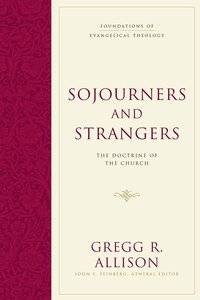It is obligatory to note upfront that Origen was and is a controversial figure. The debate over accepting his views as orthodox or useful is ongoing, including the veracity of the number of times he was anathematized, whether or not he actually taught some of the doctrines he was accused of teaching, the extent to which he influenced Arius, and whether one should be posthumously anathematized without the opportunity to recant. Some of these debates are discussed in following footnotes.
Despite this caveat, given his enormous (and positive) impact on early Trinitarianism, it is interesting to consider how his teachings influenced Trinitarian history. Most notably, he seemed to wrestle more fully than his predecessors with the ontological implications of the shared substance of the Father, Son, and Spirit that would later define the orthodox Trinitarian affirmations. This is not to say that Origen was ultimately as clear on ontology as the Nicenes or even in agreement with them—only that he wrestled with ontological implications more than his predecessors.
So, was Origen an Athanasian or an Arian?
Holmes asserts, “It is fair to say that, by the beginning of the fourth century, many or most theologians leaned to one or the other of Origen’s tendencies” in reference to Origen’s tendencies to discuss both the unity and difference between the Father and Son.[1] Anatolios notes similarly that Origen influenced the Alexandrians with his idea of eternal generation and the Arians with his idea of real distinctions within the Trinity.[2] Wellum says plainly, “in terms of Trinitarian and Christological thought, many later orthodox theologians were highly indebted to him, particularly Athanasius and the Cappadocians—Basil and the two Gregorys.”[3] Moreover, as Rebecca Lyman notes,
Origen’s attempt to explain the incarnation of the Logos in terms of a pre-existent human soul was one of the first constructive Christologies, and anticipated many problems in later theology regarding the proper union of divine and human nature.[4]
Ayres acknowledges this point, while contending: “Origen directly denies that that the Son can come from the Father’s ousia, as this would imply a material conception of the divine generation.”[5] However, Ayres also admits that Athanasius may have been influenced by Origen’s emphasis on “the closeness of Son to Father.”[6] Holmes agrees with the charge of subordinationism: “Origen … seemingly finds it impossible to speak of God’s activity in the creation without lapsing into subordinationist language.”[7]
Rutherford says that Origen believed Jesus was “begotten of the Father before all creatures” and “became incarnate while remaining God,” and that “the Holy Spirit is associated in dignity and honour with the Father and Son” and clearly not made or created.[8] For example, in his commentary on the Gospel of John, he considers the multitude titles given to Jesus. He challenges the idea that “Son of God” is special or unique in relation to all of Jesus’s biblical titles, and instead aims to consider how all of the biblical titles paint Jesus not merely as “an expression of the Father occurring in syllables” but in regard to “what manner he has essence.”[9] Though she appears to lean toward Origen believing that the Holy Spirit was divine in some sense, Rutherford is careful to show that there is a debate surrounding whether Origen thought the Spirit was actually a creature or, if not, whether he was subordinate to the Father. Holmes has been more forceful regarding the ambiguity: “[For Origen,] the theological question of the Trinity is not whether to worship Father, Son, and Holy Spirit, but how to understand the triune life of God.”[10]
While it is fair to question whether his Trinitarian thought was a form of subordinationism, his wrestling with divine essence and hierarchy of origin and function was in many ways ahead of his predecessors, as well as a precursor for his contemporaries and successors. This does not mean that he was not engaged in language contemporary with his time, such as the use of angelomorphic Christology. However, Origen seemed able to distinguish between the various ways “angel” or “messenger” is used in the Bible as a title or designation and the idea of Christ having an angelic nature stricto sensu.[11] Gieschen notes that Origen sometimes refers to angels in the Bible as Christ or the Holy Spirit, but Gieschen’s point does not require of Origen a belief in “angel Christology.”[12]
Was Origen an Athanasian or an Arian? Since he predated them, technically neither. However, due to his proto-Trinitarian wrestling with ontology and economy, both sides of the Nicene debate found a resource in him.
—
[1] Holmes, The Quest for the Trinity, 83.
[2] Anatolios, Retrieving Nicaea, 17.
[3] Wellum, God the Son Incarnate, 276.
[4] Lyman, Christology and Cosmology, 69.
[5] Ayres, Nicaea and its Legacy, 24.
[6] Ayres, Nicaea and its Legacy, 47.
[7] Holmes, The Quest for the Trinity, 80.
[8] Rutherford, “The Alexandrian Spirit: Clement and Origin in Context,” in The Holy Spirit in the Fathers of the Church, 41-43.
[9] Origen, Comm. Jn. 1.151.
[10] Holmes, The Quest for the Trinity, 75.
[11] Bucur, Angelomorphic Pneumatology, xxvi-xxvii.
[12] Gieschen, Angelomorphic Christology, 195-96.





